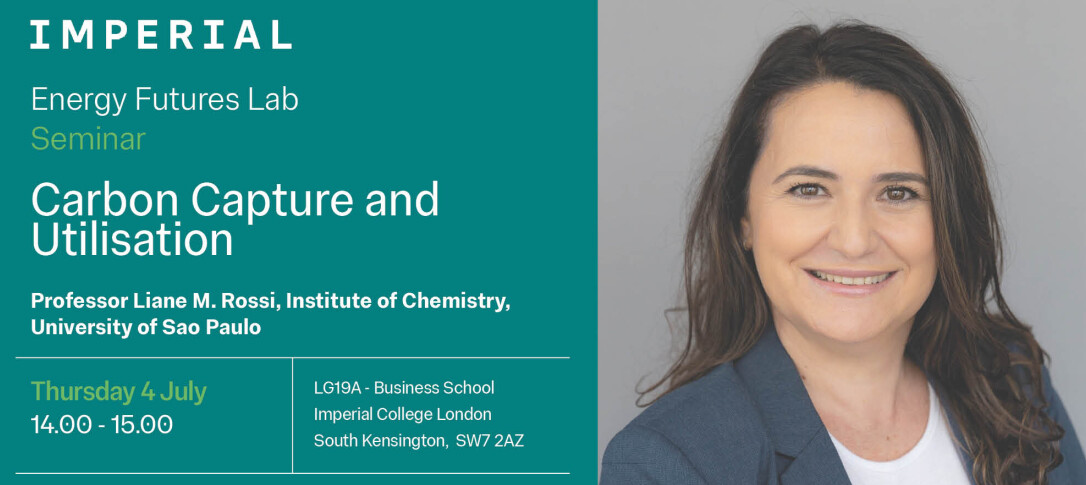
Carbon Capture and Utilisation: Methanol as a renewable energy carrier and chemical intermediate derived from CO2
Reversing climate change is one of the major challenges faced by humankind, and its resolution is far from being consensual, as it requires dramatic changes in energy sector and governmental policies. The correlation between global warming and greenhouse gases has been well established; however, greenhouse gas emissions have grown exponentially despite the several climate change treaties. The use of CO2 as a carbon source, along with renewable H2, to synthetize fuels and value-added chemicals is a promising route for mitigating CO2 emissions via carbon capture and utilization (CCU) strategies. While CO2 hydrogenation is challenging, considerable progress has been made towards methanol (CH3OH) synthesis. CH4 and CO are other molecules with one carbon (C1 products) that are concomitantly produced. Molecules with two or more carbons (C2+), such as hydrocarbons, olefins, and oxygenates, e.g. ethanol, possess high economic value and energy density than C1 products. Nevertheless, the C-C coupling reaction is difficult to control, and the reaction selectivity remains a daunting challenge when developing catalysts for C2+ synthesis.
Methanol remains the most promising CO2-derived molecule and it can be considered a renewable energy carrier and a chemical intermediate. An overview of methanol synthesis and some results obtained in the last few years at the Research Centro for Greenhouse Gas Innovation will be discussed in this talk.
Biography
Professor Liane M. Rossi holds a BS degree in Chemical Engineering (UFRGS, Brazil, 1994) and a PhD degree in Chemistry (UFSC, Brazil, 2001). After postdoctoral research experience in Brazil and the USA, in 2004, she joined the Institute of Chemistry at the University of São Paulo (USP) and became a Full Professor in 2016. Her research interests in the field of chemistry and catalysis include novel approaches for the synthesis of supported metal nanoparticles with controlled size, morphology and surface properties, catalyst recovery and recycling, new reactivity patterns at metal-ligands interfaces, bimetallic and hybrid catalysts, and the concepts of green chemistry for selective transformations. The main catalytic processes currently under study are selective hydrogenations and oxidations, biomass conversion into chemicals, and CO2 capture and conversion. She currently serves as Coordinator of the CCU Program at the Research Centre for Greenhouse Gas Innovation (RCGI), sponsored by FAPESP/SHELL/USP (São Paulo, Brazil). Prof. Rossi is a permanent member of the Brazilian Academy of Science, effective since January 2021. She is an Editorial Advisory Board Member at ACS Catalysis (American Chemical Society) and Chemistry Select (ChemPubSoc and Wiley), and an International Advisory Board at Angewandte Chemie. She is a member of the Brazilian Chemical Society (SBQ), Brazilian Catalysis Society (SBCAT), and American Chemical Society (ACS). She is the author or co-author of about 150 papers published in indexed peer-reviewed scientific journals which received 7000 citations and an H=47. Prof. Rossi has been awarded the King Carl XVI Gustafs professorship in environmental science (Konung Carl XVI Gustafs professur i miljövetenskap) for 2023/24.
About Energy Futures Lab
Energy Futures Lab is one of seven Global Institutes at Imperial College London. The institute was established to address global energy challenges by identifying and leading new opportunities to serve industry, government and society at large through high quality research, evidence and advocacy for positive change. The institute aims to promote energy innovation and advance systemic solutions for a sustainable energy future by bringing together the science, engineering and policy expertise at Imperial and fostering collaboration with a wide variety of external partners.